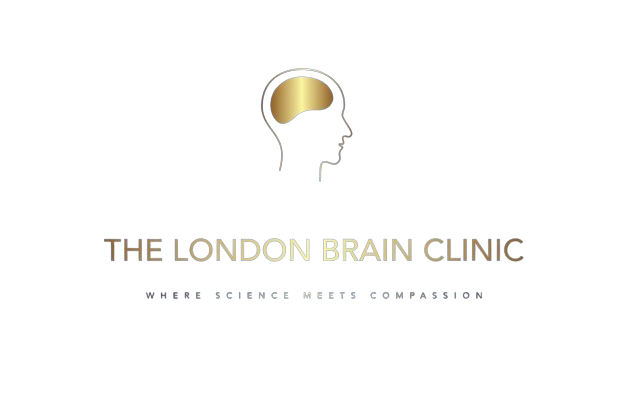Interoception refers to the brain’s ability to perceive internal bodily sensations, such as hunger, thirst, heart rate, and respiratory rate. It plays a crucial role in maintaining homeostasis and regulating emotional and physiological responses. Understanding interoception can provide valuable insights into PD, particularly in addressing non-motor symptoms that significantly affect patients’ lives.
Why Interoception Matters in PD
For individuals with Parkinson’s Disease, interoceptive awareness can be compromised, leading to challenges in recognizing and responding to internal bodily signals. This impairment can contribute to difficulties in managing stress, emotional regulation, and autonomic functions, which are already vulnerable in PD. Enhancing interoceptive awareness through targeted therapies can improve overall well-being and quality of life for PD patients.
Innovations at The London Brain Clinic
The London Brain Clinic is at the forefront of integrating cutting-edge research with clinical practice to provide comprehensive care for individuals with Parkinson’s Disease. Their multidisciplinary approach incorporates the latest advancements in PD treatment and emphasizes the importance of interoception in managing the disease.
Activities and Programs Focused on Interoception
- Interoceptive Training Programs: The clinic offers specialized programs designed to enhance interoceptive awareness through mindfulness, biofeedback, and sensory integration techniques. These programs help patients better understand and respond to their internal bodily signals, improving emotional regulation and autonomic function.
- Comprehensive Assessments: Utilizing advanced diagnostic tools, The London Brain Clinic conducts thorough assessments to evaluate both motor and non-motor symptoms of PD, including interoceptive deficits. This holistic approach ensures personalized treatment plans that address the full spectrum of the disease.
- Innovative Therapies: The clinic incorporates novel therapies such as neurofeedback and adaptive treatment plans that respond to real-time physiological changes, enhancing the precision and effectiveness of treatments for PD patients.
- Research and Collaboration: Collaborating with leading researchers, The London Brain Clinic actively participates in studies exploring the role of interoception in PD. This collaboration fosters the development of evidence-based treatments and keeps the clinic at the cutting edge of PD management.
Personalized Medicine and Multidisciplinary Care
The London Brain Clinic emphasizes personalized medicine, tailoring treatments based on each patient’s unique genetic makeup, disease profile, and interoceptive abilities. Their multidisciplinary team, including neurologists, physical therapists, occupational therapists, and mental health professionals, works together to create comprehensive care plans that address both the physical and psychological aspects of PD.
Holistic Parkinson Management: A Comprehensive Approach
Holistic Parkinson management involves addressing all facets of the disease, not just the motor symptoms. This comprehensive approach includes:
- Physical Therapy: Enhancing mobility, balance, and strength through targeted exercises.
- Occupational Therapy: Assisting patients in maintaining independence in daily activities.
- Nutritional Support: Developing diets that support brain health and overall well-being.
- Mental Health Services: Providing counselling and support for managing depression, anxiety, and other emotional challenges.
By integrating these diverse therapies, holistic Parkinson management aims to improve the overall quality of life for PD patients, addressing both their physical and emotional needs.
The Future of Parkinson’s Disease Management
The integration of interoception into PD care represents a significant shift towards more holistic and effective management strategies. As research continues to uncover the intricate connections between interoceptive processes and Parkinson’s Disease, clinics like The London Brain Clinic are well-positioned to implement these findings into practical treatments that enhance patient outcomes.
Staying Informed and Involved
For those affected by Parkinson’s Disease, staying informed about the latest research and available treatments is crucial. Engaging with specialized clinics that adopt innovative approaches, such as interoceptive training and holistic management, can make a substantial difference in managing the disease and improving quality of life.
Parkinson’s Disease presents complex challenges, but advancements in research and clinical practices offer promising avenues for better management and improved patient outcomes. The exploration of interoception and the pioneering efforts at The London Brain Clinic exemplify the evolving landscape of holistic Parkinson management, emphasizing a comprehensive and personalized approach. By integrating cutting-edge research with compassionate clinical care, we move closer to a future where individuals with Parkinson’s Disease can lead fulfilling and empowered lives.
For more insights into interoception and its impact on neurological health, https://www.sciencedirect.com/science/article/pii/S0022510X16301514?casa_token=zFcbZJVof5cAAAAA:1G2D77eV0nhtCuAJlVJYEitEyKrjh8d7a5k0xOjJcXRvdQSxq6mFSL2K8dLvQPnTAhQglJZU

